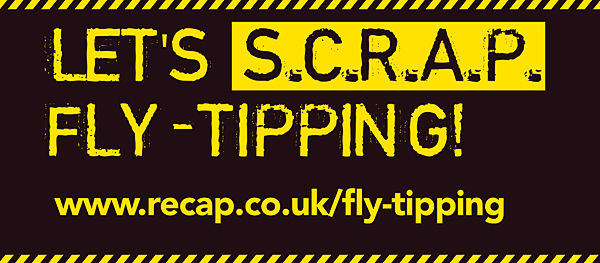Fly-tipping is a crime which ranges from dumping waste in remote areas to leaving bin bags in the street outside the boundary of your premises. It includes general household waste, large domestic items, for example, fridges and furniture, commercial waste, for example, builders rubble and tyres or garden refuse, earth and soil.
Fly-tipping is covered by the Environmental Protection Act 1990 and the Clean Neighbourhoods Act 2005. It is the council's policy to seek to prosecute each offence of fly-tipping reported to us, where evidence can be found, which could result in a Fixed Penalty Notice of up to £1000 for smaller scale fly-tips, or an unlimited fine and/or six months imprisonment for larger offences.
For more information on the council's fight against Environmental Crime, please see our Environmental Crime Enforcement Policy (PDF)
| 2017 | 2018 | 2019 | 2020 | 2021 | 2022 | 2023 | |
|---|---|---|---|---|---|---|---|
| January | 65 | 55 | 74 | 59 | 82 | 54 | 44 |
| February | 34 | 54 | 71 | 41 | 71 | 46 | 60 |
| March | 71 | 90 | 88 | 34 | 126 | 62 | 39 |
| April | 60 | 60 | 61 | 50 | 52 | 38 | 31 |
| May | 34 | 34 | 47 | 40 | 58 | 40 | 38 |
| June | 34 | 51 | 37 | 62 | 44 | 41 | 21 |
| July | 34 | 65 | 50 | 46 | 45 | 38 | 27 |
| August | 45 | 94 | 55 | 48 | 37 | 45 | 30 |
| September | 41 | 98 | 30 | 54 | 50 | 62 | 36 |
| October | 63 | 53 | 42 | 46 | 68 | 44 | 40 |
| November | 55 | 57 | 33 | 42 | 62 | 37 | 33 |
| December | 26 | 42 | 32 | 67 | 44 | 29 | 45 |
| Year Totals | 528 | 750 | 620 | 589 | 739 | 535 | 444 |
Private landowners
Clearing a fly-tip from private land is the responsibility of the landowner. The site will be investigated and prosecuted at the discretion of the council. If you are responsible for land, or are a private landowner, you must ensure that your land is as secure as is practically possible.
Waste removal from household property
If you employ a person to remove your waste, you must check that the person or company has a waste carriage licence. A register of waste carriage licence holders can be checked online (external link)
A householder is also responsible for ensuring that any waste taken from their property will be taken to a licensed waste facility. Failure to do so may result in you being held liable for an offence under the waste duty of care code of practice and receiving up to a £600 Fixed Penalty Notice. For more information, see the Duty of Care Code of Practice (external link)
The council offers a bulky waste collection service, where you can arrange for up to three household items to be taken away for a fee of £28.50. There are several recycling centres in our area where you can take items for disposal.
Guidance for waste carriers
As a waste carrier, you have the responsibility to complete a waste transfer note for the waste that you handle. You may be required to produce this documentation to an officer of the local authority and failure to do so within seven days is an offence which can result in a £300 fine.
For more information on registering as a waste carrier and licence renewal visit Environment Waste Management website (external link)
Business waste
Waste produced as a result of business activity is classed as controlled waste - businesses are therefore legally responsible for making sure that it is disposed of correctly. If you dispose of your own waste, you must be registered as a waste carrier with the Environment Agency and complete transfer notes for the waste that you dispose of. For more information on business and commercial waste visit Managing Your Waste An Overview website (external link). Businesses have a duty of care to ensure that waste is disposed of correctly and to provide a valid waste transfer note when required. Failure to do so could result in a fixed penalty fine of £300 or prosecution.
Have you witnessed fly-tipping?
If you have witnessed somebody fly-tipping, then please report it using our self-service form (external link) online 24 hours a day, or by phoning the council on 01353 665555 during office hours. Any information you give us will be used and stored in accordance with principles found in the General Data Protection Regulations. Find out more about reporting a fly-tip
If you have discovered a fly-tip that has been left on a road, please contact the police so that the hazard can be made safe and arrangements for removal can take place.

